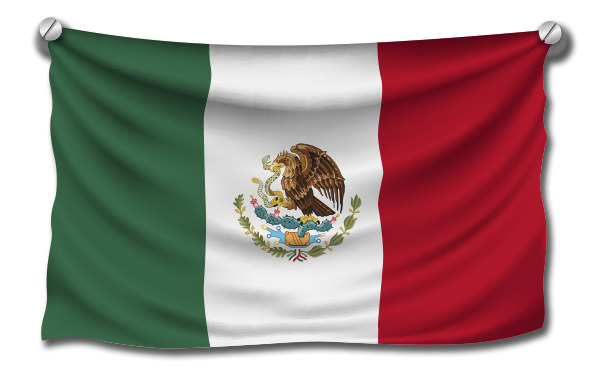ICES High School Study Abroad
Merida, Yucatan
Mexico
Program Schedule
Year (10 months):
August – June
Price: $20,000 (flights and insurance included)
Semester (5 months):
August – January
January – June
Price: $14,000 (flights and insurance included)
Short-Term (3 months):
August – November
January – April
April – June
Price: $10,000 (flights and insurance included)
Prices are subject to change
LEARN MORE ABOUT STUDY ABROAD
SUBMIT INTEREST IN STUDY ABROAD

High School Study Abroad Mexico
Merida, Yucatan
Mexico, a vibrant gem in North America, enchants visitors with its rich culture, stunning landscapes, and
warm hospitality. From the ancient wonders of Chichen Itza to the pristine beaches of Cancun, it’s a
paradise for explorers. Savor mouthwatering cuisine, dance to lively mariachi music, and embrace the
colorful tapestry of Mexico.
Yucatán, Mexico’s hidden treasure, beckons with its captivating blend of Mayan heritage and modern
charm. Explore the mystical ruins of Uxmal, savor Yucatecan cuisine’s flavors, and unwind on the serene
shores of Celestún. This enchanting region promises a cultural journey and natural beauty that will leave
you spellbound.
Mexico Country Information
Area: 761, 600 Square Miles
Population: 122.3 Million
Capital City: Mexico City
Language: Spanish
Government: Federal Government of Mexico (Federal Republic)
Mexico has many different landscapes: volcanic peaks, snowcapped mountains, tropical rainforests, and internationally famous beaches. The majority of the population and cities rest in the area between the Sierra Madre Occidental mountain range to the west and the Sierra Madre Oriental to the east. Mexico City, the capital, is an enormous metropolitan area with nearly one fifth of the nation’s population living in or around the city.
Culture
Mexico has a rich heritage in art and architecture and is recognized internationally for the contributions of its artists – from the builders of the Olmec statues and Mayan pyramids, to the modern 20th century muralists.
Mexico’s blend of indigenous and European roots has influenced many of its traditions and culture, from musical styles, folk art, and cuisine. The ethnic composition of the country features European (Spanish), and indigenous populations. Mestizos – people of mixed Spanish and indigenous descent – now account for about 60 % of the Mexican population.
Mexican cuisine is known for its intense and varied flavors, colorful decoration, and variety of spices. Most of today’s Mexican food is based on pre-Hispanic traditions, including the Aztecs and Maya, combined with culinary trends introduced by Spanish colonists. The most internationally recognized dishes include chocolate, tacos, quesadillas, enchiladas, tamales and mole among other mouth-watering flavors for you to discover!
School Life – Private High School
You will go to a private school in México, may be smaller than your high school in your home country. This means that interaction with your classmates is important, and integration is a key to making friends. Mexican students in general are friendly and interested in learning about you and your culture. It is important to take initiative and try to make conversation during free times.
The teaching style tends to be more directive, which some exchange students are not used to. You are expected to get involved in the academics, even if your Spanish is poor at the beginning. The more interest you show, the faster you will learn the language and make friends at school. Do not expect that people will come to you in order to make friendships. You must be proactive in order to get the best out of your school time.
Even if the grades you get in Mexico do not count for you back in your country, you are expected to attend all your academic responsibilities as a regular student. All schools in Mexico require uniforms both for regular attendance and for physical education classes.
Not all schools offer extra-curricular activities, but there is always the chance to join sports clubs in the community as well. The most common sports practiced by teenagers are soccer, basketball, swimming,
and volleyball.
Host Family Life
Host Families are from a middle-class background. Families who decide to host do so primarily to learn about your culture and enrich their home with your presence.
In general, Mexican families do not travel very much. They do it mostly on vacation periods, but some families take these vacation periods as a resting time. This is just general information and does not mean that families don´t travel at all, but it is important to have clear expectations. There will be opportunities to share family activities, visits to relatives and even recreational activities and travel, but don´t expect that your host family will take you everywhere or have an activity planned for every weekend.
Most of the host families in Mexico practice a religion and go to church every weekend. Religion is an important part of family life. We always encourage an environment of mutual respect in this area.
Program Extras
We work with a local agency that specializes on exchange students under 21, they make monthly or
bimonthly trips at low budget so everyone can explore Mexico, some of the places they go are Caribbean, Chiapas, Holbox, Mayan Rout, Rivera Maya, etc.
Program Requirements
Students must be 14 – 17 years old. Students should have studied Spanish and be able to function at least on a basic level in the language. The student’s Spanish teacher will be asked to evaluate their conversational ability as part of the application process.
Program Rules
No driving, no drinking, no smoking or drugs and obey the Mexican laws and the host family rules.
VISAS
Students will enter the country on a tourist visa. The Mexico agency will assist each student with all aspects of securing their student visa after they have arrived. Your ICES Study Abroad team member will inform you of all the required documents needed for the process and provide you with any other related information.
ADDITIONAL INFORMATION
Mexico is a widely diverse country, and students are carefully placed only in known safe placement areas. Students may travel within Mexico with their host family or school.

